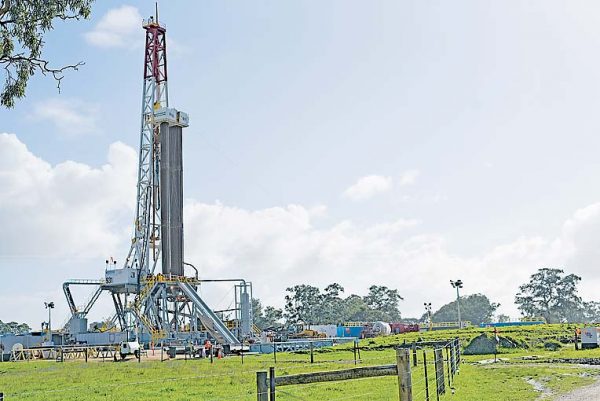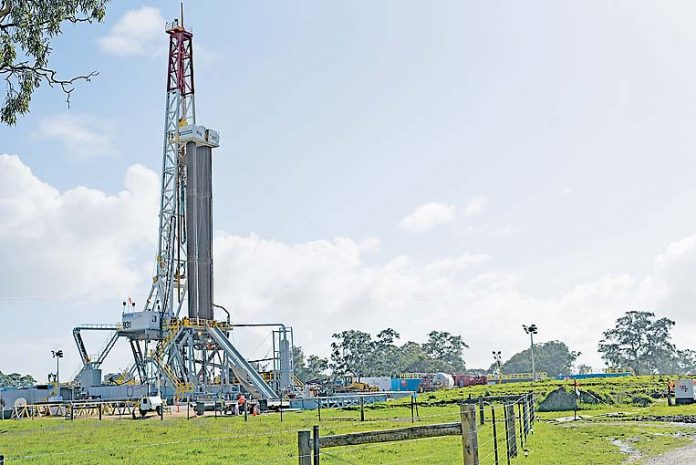
GRANT District Council has adjourned a decision about co-signing an open letter to Premier Steven Marshall expressing opposition to the new petroleum licences being rolled out across the state.
While the issue sparked debate around the chamber this week, elected members stopped short of making a decision.
This follows Fossil Free South Australia calling on council to co-sign the letter which comes on the heels of the State Government’s agenda to ramp up gas and oil exploration across regional areas.
Bidding is now open for three new petroleum exploration licences in the Limestone Coast, which sweeps across most of the lower part of the region.
Petroleum companies have until November 29 to apply for these new licences.
Speaking at the meeting, Cr Brad Mann said it was an issue that needed careful consideration.
“I think it something we need to be careful of with gas and oil exploration in certain parts of the state, especially in the Great Australian Bight,” Cr Mann said.
He warned this could to led a “catastrophe” for the South East fishing industry if these activities went “ahead and failed”.
“Oil loss in that area would devastate the coastlines here … as a council we need to be concerned about that because fishing is one of our biggest industries in this area,” the elected member said.
“We talk every week about water in this council – that will certainly be an issue if gas exploration turns from conventional to non-conventional in the South East.
“They will use a lot of water and if farmers are thinking they are having problems with water before, they will certainly have problems with water afterwards.”
He warned gas mining was not a “non-invasive” industry.
“I did some travelling around Queensland and if you look at the back areas of just one area, the whole area has become industrialised,” Cr Mann said.
“The people there do not like it, apart from those making money.”
Conceding fossil fuels were still going to be part of the energy mix in the future, he said fossil fuel activities were of concern.
Adding to debate, Cr Julie Reis said she supported Cr Mann’s comments arguing the future needed to be considered.
She said petroleum activities had the potential to impact on the region’s fishing, forestry and other industries that relied on water.
Cr Reis also flagged these activities had the potential to impact on the region’s “clean green image”, which was an important marketing strategy.
Cr Jody Elliott – who has worked in the mining sector – described the region as pristine with unique features.
“As a bare minimum, I would not want to see non-conventional fracking occurring. Conventional has a lot of tight guidelines that sit around that and organisations have a lot of requirements they need to meet,” Cr Elliott said.
The elected member highlighted the fact petroleum mining jobs were only traditionally created through the construction phase in regional areas.
“Oil and gas is actually a very small employer across Australia,” the councillor said.
The Fossil Free SA letter – which has been sent to councils across the state – calls on the State Government to revoke the May 2019 release of oil and gas exploration areas.
These include the Cooper, Eromanga and Otway Basins and to ban all further fossil fuel exploration and all new fossil fuel extraction projects – those not yet approved – in South Australia.
“During the transition to renewable forms of energy, supply of gas for backup electricity generation, industry and household use is guaranteed by clauses attached to the 2017 PACE grants for recent new gas extraction projects,” the letter said.
“Any further new gas extraction in South Australia is likely to mean more gas exports – we do not need it.
“South Australia already has over 50pc renewable electricity, meaning that all-electric households – even those without solar PV – have much lower carbon emissions than those households that still use gas appliances.
“They also have lower energy bills, so the trend away from domestic gas use is likely to continue.
“We ask you to step up as a climate leader and take at least this first and easiest step in response to the climate emergency by banning new fossil fuel.”








